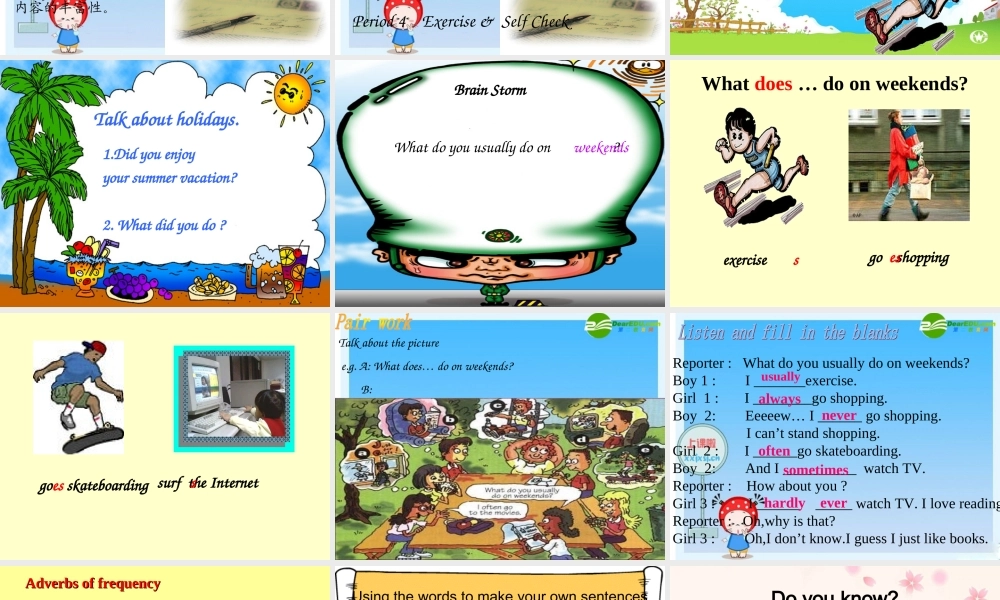Unit 1How often do you exercise?教材分析:本单元以“ How often do people do things?”为话题 , 恰当地使用频度副词及短语,并学会描述生活习惯 ( 如课余时间的活动安排和基本饮食结构)。教学目标:A 知识目标:恰当使用不同的活动及食物名称,灵活运用如 always ,hardly ever , never , once, twice, three times a week 等频度副词及 how often , as for, look after, the same as 等重要词组。掌握句型: What do you usually do on weekends? How often do you exercise? My mother wants me to drink it. She says it’s good for my health. Good food and exercise help me to study better.教学目标:B 能力目标:描述课余时间的活动安排及饮食习惯,初步培养学生的语言综合运用能力。C 情感目标:培养学生的逻辑表述能力,激发学生的积极思维,加强互相了解,增进友谊。形成良好的生活方式。重、难点分析:教学重点:( 1)了解不同的活动和食物名称,掌握常见的频度副词,如 usually 、 always 等。( 2)掌握好重点句型:What do you/they usually do on weekends ?How often does Cheng watch TV ?教学难点:( 1) How often 句型及频度副词。( 2)如何用所学知识进行综合运用,并要求其内容的丰富性。课时划分及教学内容安排:Period 1 Section A(1a-2c)Period 2Section A 3 ——Section B 2cPeriod 3Section B 3a —— Self CheckPeriod 4 Exercise & Self CheckUnit 1How often do you exercise?Period 1Section A(1a-2c) Talk about holidays. 1.Did you enjoy your summer vacation?2. What did you do ? Brain StormWhat do you usually do on ? weekendsWhat does … do on weekends?exercisego shoppingsessurf the Internetgoes skateboardingsTalk about the picture e.g. A: What does… do on weekends? B:Reporter : What do you usually do on weekends?Boy 1 : I _______exercise.Girl 1 : I ________go shopping.Boy 2: Eeeeew… I ______ go shopping. I can’t stand shopping.Girl 2 : I ______go skateboarding.Boy 2: And I __________ watch TV.Reporter : How about y...




